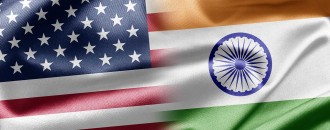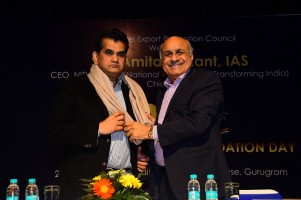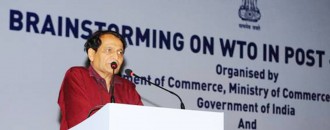
PM Modi’s 4 day Europe tour, FTAs, trade talks to take precedence
Sheela Mamidenna
Earlier in 2017, the Prime Minister Narendra Modi while addressing a geopolitical conference said, “Our economic and political rise represents a regional and global opportunity of great significance. It is a force for peace, for stability and an engine for regional and global prosperity. For my government, this has meant a path of international engagement focussed on building development partnerships that extend from the islands of the Indian Ocean and Pacific to the islands of the Caribbean and from the great continent of Africa to the Americas. Creating Indian narratives on global challenges.”
Well, for that matter, trade agreements play an important role in leveraging a country’s economic growth. Concurring to it, our globetrotting Prime Minister has made more than 50 foreign trips – as of February 2017 – firmly entrenching India and its foreign policies on the global trade map. And this many say that India’s international relations and policies have never looked better, which of course is the achievement of his several trips.
For the naysayer, the Prime Minister has signed a massive accord of $75 billion with UAE to invest in domestic infrastructure and a dynamic uranium deal with Australia to boost the country’s nuclear energy capacities. Worth the mention are also the transport corridor deals with Iran and Afghanistan, membership to the prestigious Missile Technology Control Regime (MTCR), strengthening defence ties with the US, decisively advocating engagement with India’s East Asian neighbours and much more.
Once again, the Prime Minister has embarked on a four-nation tour to Germany, France, Russia and Spain – starting today. This tour, as per source, will not only give a fillip to India’s economic ties with the giant four, but also attract more foreign direct investments into the country. One of the biggest expectation of this tour is to cement, rather brush the skeleton, the India-EU FTA. However, there is doubt on the outcome of the current four-nation tour as concerns with the recent clamour of uncertainties in reaching a consensus in the Regional Comprehensive Economic Partnership (RCEP) deals remain unsolved.
The pressing points that could prove to be a challenge to the Indian contingent accompanying the Prime Minister on his tour, to bring about a consensus in the FTA between India and EU are:
- The tax liabilities provisions that India has included in 2015 in its EU-India Bilateral Trade and Investment Agreement that EU is yet to comply with
- EU’s insistence to liberalise the FDI in multi-brand retail and insurance to which India countered with an insistence of opening up the Mode-1 and Mode-4 EU markets
- Widening of IPR policies by India to include exclusive tea and other Indian products
- Redressal of clinical data rights since many Indian bio-pharmaceutical companies have been included in the new list
- EU’s peak tariff rates on agricultural products, dairy and fishery products
If successful, the FTA between India and EU could be a game changer globally as India needs to act fast to counter China’s marauding moves through OBOR. It remains to be seen if the PM can charm his way around on his 51st tour. And as per some optimists, the India-EU FTA might just see the light soon (or this time) as EU’s other partnership with other countries are not shaping up – as expected. As of 2016, India-EU bilateral trade stands at $96 billion – up from $55 billion in 2006.






 to success.
to success.